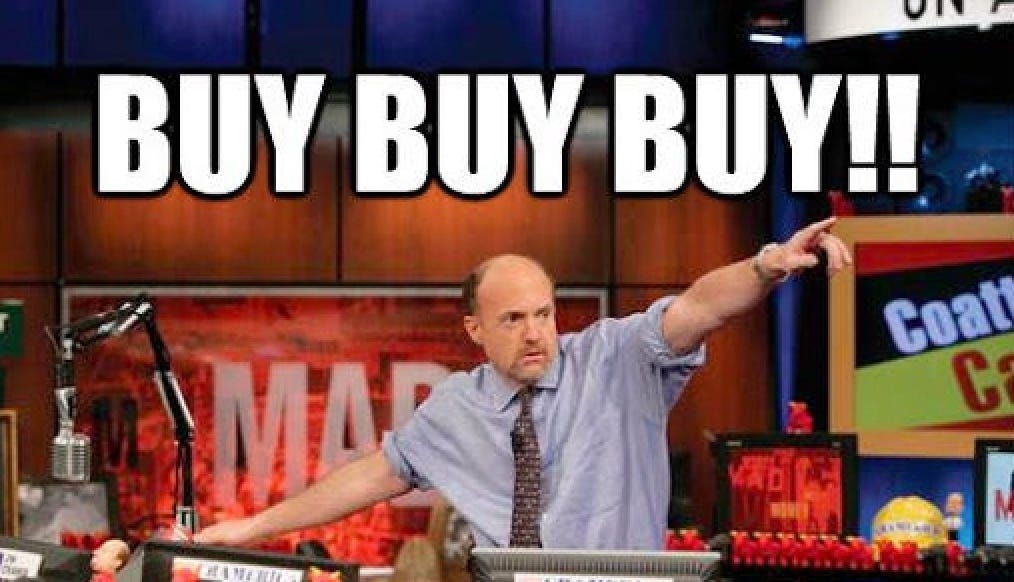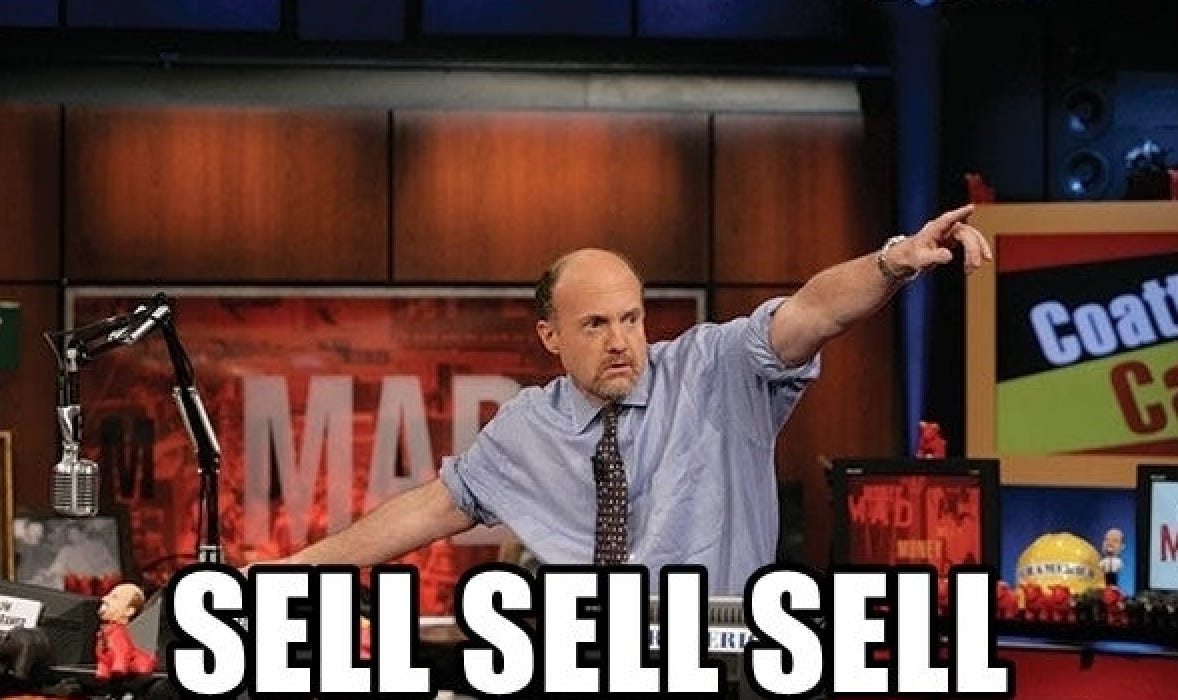Too Clever by Half!
The temptation to trade in the stock market can be overwhelming, especially when prices are moving quickly. It's useful to ask, "What would Charlie Munger say?"
The temptation to trade in the stock market can be overwhelming.
During a Berkshire Hathaway annual meeting in the mid 2000s, I was seated next to a couple of smartly dressed shareholders in their early thirties, about my age at the time. I recall the usual small talk as we waited for the movie to begin and then for Warren Buffett and Charlie Munger to take the stage.
I do not recall the specific questions asked during the meeting, but there were definitely many admonitions from Berkshire’s leaders about having a long-term mindset, steering clear of short-term trading and speculation, etc. We nodded in agreement and laughed at people who get themselves in trouble doing stupid things. I can’t read minds, but I think my neighbors felt much, much smarter than the typical investor. I certainly felt that way about my own abilities.
It’s always other people who do silly things, who try to outsmart the market, who get into trouble trading, and get a hard lesson from Mr. Market. Right?
Well, no, not really.
As the meeting recessed for lunch, my neighbors started talking about whether Berkshire’s stock was likely to retreat on Monday based on a comment Warren Buffett made. I don’t recall the specifics and it isn’t important. These guys, in all seriousness, were talking about trading immediately after “attending church” for several hours!
I definitely overestimated my abilities at that time, but even I was smart enough to know that there was no possibility I could successfully trade the stock!
I don’t know if those guys traded the stock and, if so, how it worked out for them. But I am sure that they thought Warren Buffett and Charlie Munger were talking about other people when they spoke of having a long-term mindset. Over the years, I have found that many Berkshire shareholders tend to think they are above average traders.
“Everyone else should buy and hold. They can’t hope to get in and out of the stock. But that’s for other people, not for me. I’m sophisticated and can sell high and get my position back at a lower price!”
This anecdote from long ago is an example of being “too clever by half,” a British idiom that refers to people who regard themselves as a bit too … brilliant.
The instinct to trade can be very, very strong.
Consider the strange action in Berkshire’s stock price today following the release of the annual report over the weekend, which I discussed in an article this morning. Shortly after I posted my article, I looked at the pre-market action of the stock and my jaw dropped. Berkshire’s Class B shares appeared to be trading above $430, over 3% above its closing price on Friday.
Did I miss something about Berkshire’s new “AI” initiative in the annual report?
A 3% pop in a stock is no big deal for many companies but it is a fairly large move for Berkshire. Perhaps investors were focusing on the high net income figure, bolstered by unrealized gains on stocks during 2023? Did investors read Warren Buffett’s letter which expressed caution about the future of the utility business? I assumed the stock would be flat or down somewhat based on the report, but I had no thoughts of trading.
Then, in less time that it probably takes Warren Buffett to travel from the McDonalds drive-thru to Kiewit Plaza, the stock plummeted from $430 to $411.
What’s going on?
The truth is, I have no idea what caused the gyrations in the stock this morning, and in fairness to Jim Cramer, I’m not aware that he has opined either, although he probably will! In the short run, stocks can do crazy things.
Here’s Berkshire’s Class B chart for Friday and today:
Warren Buffett has released Berkshire’s results on Saturday morning for decades precisely because he wants shareholders and the media to have the entire weekend to soberly review the report and understand the contents before trading resumes on Monday morning. But I doubt he was surprised about today’s strange price action. It is human nature to act on headlines and most people are emotional and greedy.
This excerpt from Mr. Buffett’s letter could not be more timely:
“Though the stock market is massively larger than it was in our early years, today’s active participants are neither more emotionally stable nor better taught than when I was in school. For whatever reasons, markets now exhibit far more casino-like behavior than they did when I was young. The casino now resides in many homes and daily tempts the occupants.”
Casino-like behavior.
That sums up not only the stock market but so many aspects of life in the United States today. We live in an age of being able to bet, legally, on nearly anything not just from the comfort of our homes but from anywhere using our smartphones.
Gambling culture has taken hold and everyone wants to score the quick win.
Even for long-term investors with no gambling instinct, moves like today can be irritating if we take the price swings too seriously. Many longtime Berkshire shareholders have a significant percentage of their net worth in the stock. If you can take advantage of a swing like today’s by selling at $430 and buying back in at $410, that can add up to a very large amount of money for many shareholders, including for me. It can be absolutely deadly if you translate these moves into dollar amounts and then consider what you could have purchased with the trading windfall.
But maybe some of the people who sold at $430 did so on an intrinsic value basis?
That’s certainly possible. Long term shareholders might have read the report and concluded that shares were getting too expensive and decided to sell. In such a situation, it is obviously better to get $430 than $410 for your shares if you read the report and conclude that the shares are only worth $350 or $375, for example.
And maybe some sellers just needed to raise cash?
Of course, if you need to raise cash for living expenses or other purposes in the near term, it is much better to get $430 for your shares than $410 or $375.
But I don’t think it makes much sense for someone who’s invested in a business for the long term to try to exit at $430 and get back in at $410.
That’s a very dangerous game.
If you intend to be a long-term shareholder in a business, trying to profit from this type of move is a very bad idea. It could work well for a specific trade, like today. But like any gamble that pays off, the dopamine effect is so powerful that success will inevitably induce further gambling in the future.
The prospect of coming out on top over a series of such trades is quite low. No one knows the future trading range of a stock. There have been plenty of times in the past when Berkshire hit a price that seemed “high” and never again revisited that level. In such a case, a trade would put the investor in the psychologically difficult position of having to buy back in at a higher price or never getting back in at all.
It is very difficult from a psychological perspective to buy back into a position at a higher price than one’s exit. Many investors just can’t bring themselves to do it.
It might be useful for Berkshire Hathaway shareholders to ask themselves what Charlie Munger would do in this type of situation.
We all know the answer.
If you are tempted to gamble in the stock market, especially using Berkshire’s stock as the vehicle, simply picture Charlie Munger with a look of mild disapproval and slight amusement, slowly shaking his head. I think that’s a useful mental model!
If you found this article interesting, please click on the ❤️️ button and consider sharing it with your friends and colleagues.
Thanks for reading!
Copyright, Disclosures, and Privacy Information
Nothing in this article constitutes investment advice and all content is subject to the copyright and disclaimer policy of The Rational Walk LLC.
Your privacy is taken very seriously. No email addresses or any other subscriber information is ever sold or provided to third parties. If you choose to unsubscribe at any time, you will no longer receive any further communications of any kind.
The Rational Walk is a participant in the Amazon Services LLC Associates Program, an affiliate advertising program designed to provide a means for sites to earn advertising fees by advertising and linking to Amazon.com.
Individuals associated with The Rational Walk own shares of Berkshire Hathaway.





Are you freaked out by the BHE comments Buffett made in the letter? Some folks on message boards are selling out their entire positions because of that comment it would appear.